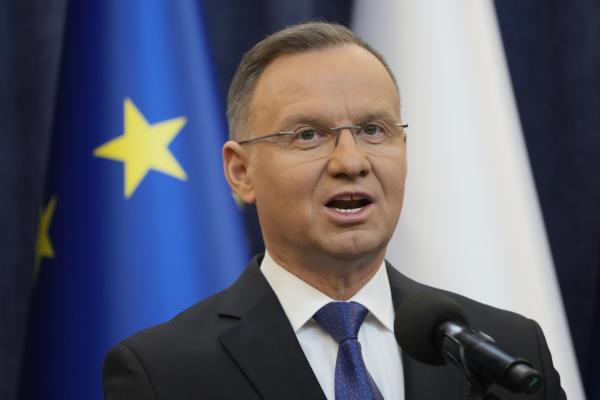
One year after his election victory, Poland's leader announced a temporary halt to the right to claim asylum in response to a crisis at the Polish border with Belarus. This move, signaling a broader rightward shift in Europe, reflects a growing trend among centrist figureheads to adopt stricter positions on irregular migration.
Across Europe, countries like Germany and France are implementing border checks and hinting at immigration curbs amid concerns over security and support for far-right parties. Italy's agreement to ship migrants to Albania has also garnered attention.
Poland's leader, Donald Tusk, is leveraging his political capital to address illegal migration, recognizing its potential to sway public opinion and impact centrist governments. The Belarus border crisis, allegedly fueled by Russia, has intensified the debate on asylum policies within the EU.



While some European leaders advocate for a more welcoming approach to migration, the prevailing sentiment favors stricter measures. The EU's response to the Belarus situation underscores the complexities of balancing humanitarian values with security concerns.
Despite a decrease in migrant arrivals, political tensions persist, with right-wing parties capitalizing on public fears and incidents involving migrants. This has led to a shift in rhetoric and policy towards tighter border controls and external processing centers.
Migrant rights groups have criticized these developments, warning against policies that compromise asylum and migration principles. The EU's internal divisions on migration further highlight the challenges of reaching consensus among member states.
Poland's stance on asylum reflects a strategic move by Tusk to address border security concerns and counter populist narratives. As Europe grapples with the implications of rising migration and far-right surges, the future of the Schengen Area and the role of centrist leaders in shaping migration policies remain uncertain.
While Tusk's approach may resonate with voters, questions linger about distinguishing centrist positions from those of the hard right. As Europe navigates this complex landscape, the balance between security, humanitarian values, and political pragmatism will continue to shape the continent's approach to irregular migration.







